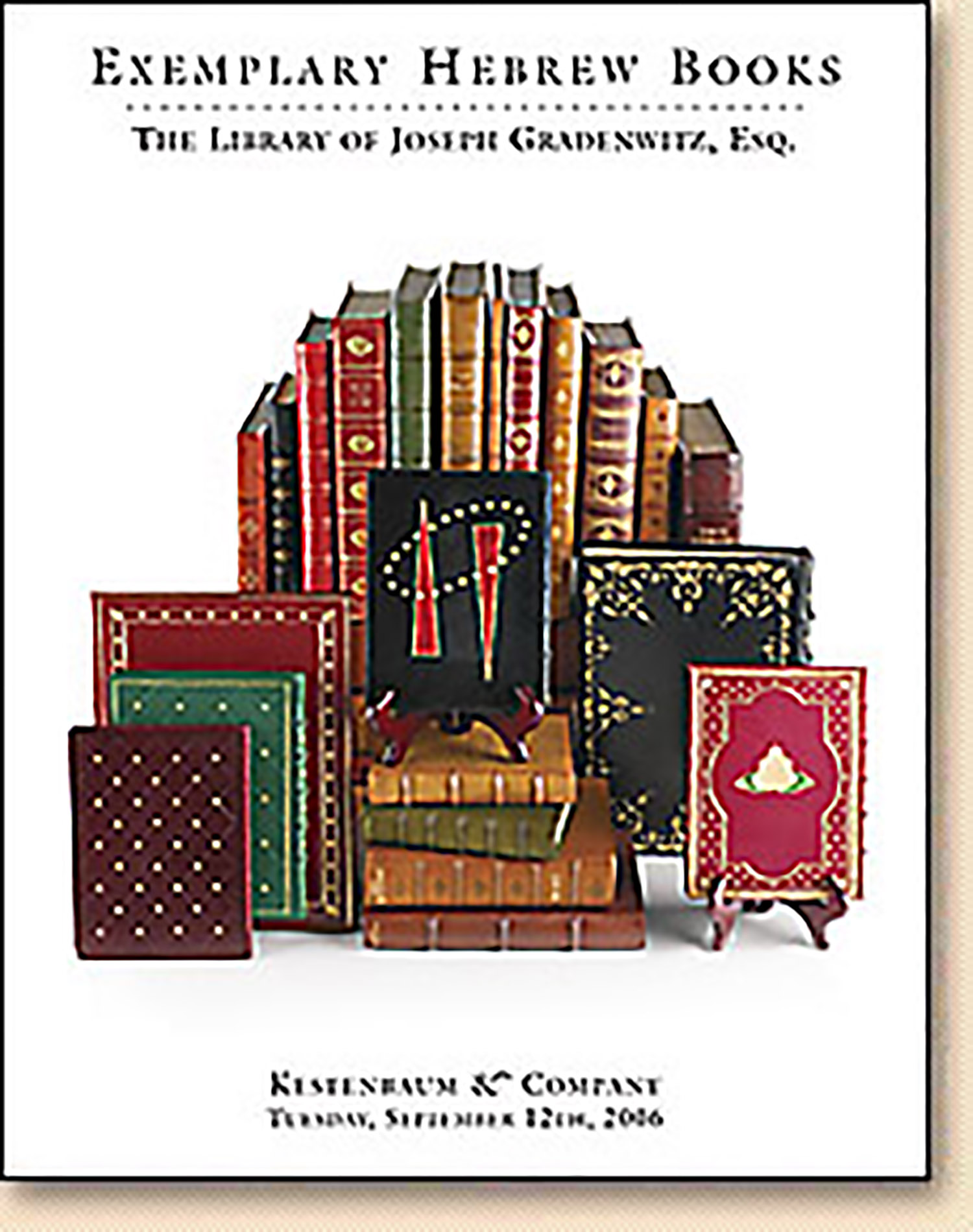Kimchi, Moses

AUCTION 34 |
Tuesday, September 12th,
2006 at 1:00
Exemplary Hebrew Books: The Library of Joseph Gradenwitz, Esq.
Lot 95
Kimchi, Moses
Est: $1,500 - $2,000
PRICE REALIZED $1,400
The two works Masoreth ha-Masoreth and Tuv Ta’am are often bound with an abridged Latin text prepared by Sebastian Münster. It is unclear to bibliographers whether the three works were originally assembled together. Yudlov writes that the Latin version appeared independently. (see Ginzei Yisrael, p. 279, no. 1864).
Levita put forth the theory that the cantillation points (or trope) of the Torah were not Sinaitic but rather post-Talmudic in origin. This novel idea, which seemingly contradicted the simple sense of the Talmud (see TB Nedarim 37b and commentaries), became the subject of much controversy. Even an individual as innovative as Moses Mendelssohn defended the antiquity of the te'amim. But others, such as Samuel David Luzzatto (SHaDaL) agreed with Levita.
Elijah Bachur Levita (1468-1549) remains a controversial figure. Many of the rabbis of his time censured him for transgressing the traditional stricture of not teaching Torah to Gentiles. Nevertheless a sage of piety such as the revered Gaon of Vilna relied upon Levita’s grammar in many instances. See EJ, Vol. XI, cols. 132-5
